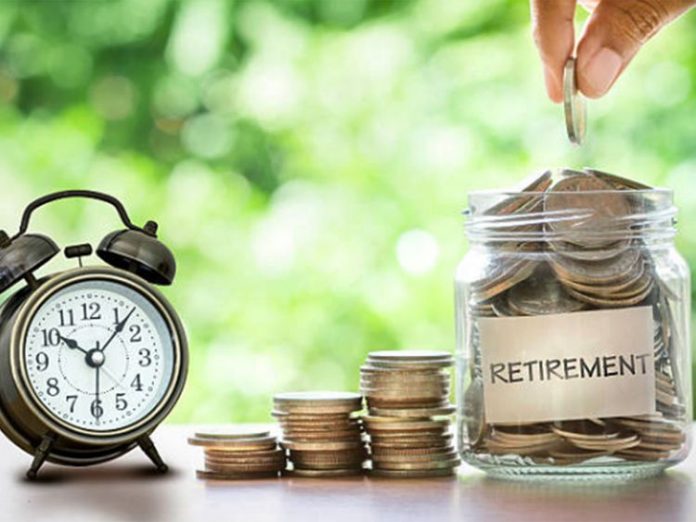Whether you plan to retire early, late, or never ever, always have some money saved up!
There have been several who have posed the question – Can I enjoy my retirement years on a minimal salary, and how then can I secure a financial future for myself?
The answer experts give is simple – As long as you are not cutting it way too close to your retirement, you are not too late to enjoy your future retirement years.
Financial advisers often say people usually aren’t starting to save for retirement until their late 30s and early 40s anyway, so if you are well within that age range, then well and good, you’re on track with many others like you.
However, hope is not lost for those who are older and have still not begun planning or saving for retirement. If you are between 55 and 64 years old, you still have time to boost your retirement savings, several studies have indicated.
Whether you plan to retire early, late, or never ever, having an adequate amount of money saved can make all the difference, both financially and psychologically. It is all about how you plan to go about it at this moment in time, rather than later.
So, whatever be your age, to create a secure retirement later in life, there are a few steps you will have to take right now, if your salary is what limits you from saving.
Here is a step-by-step walkthrough on how you should go about planning for your retirement.
• FIRST GET YOUR FINANCIAL HOUSE IN ORDER AND ANALYZE YOUR SPENDING!
The first is keeping your financial house in order. Before you can really ramp up your retirement savings, make sure you have an emergency fund.
Most financial advisers will suggest having three to six months’ worth of living expenses stashed away in a savings account, and you will probably want to aim for the latter if you have kids at home.
The coronavirus crisis has highlighted the importance of an emergency savings account. The lesson a lot of people have learnt this time around is that is they do not think that bad things will ever happen, and hence not plan for an emergency ahead of time.
If nothing else, what the last couple of months would have taught us is you can be living your life and suddenly everything changes.
It never hurts to analyse your spending, too, experts are often seen recommending. This includes reviewing your credit card and utilities statements.
Are you spending on services you do not actually care about? Can you work with your cable company to lower your monthly bill? You can also break down your spending into wants and needs, so that you can better reflect on where that money is going and if it makes you happy.
• Look at what investing avenues suit you (And yes, there are options that fit any budget!)
Once you have those figured out, it is time to look at your investing options. For this we need to inspect what situation you are currently in.
Let us particularly focus on how to invest if you currently earn nominally to even no income in the family. This particularly is applicable, if you are a stay-at-home mum or dad where either your spouse or better half works and brings in the income.
IF YOU DON’T HAVE THE LUXURY OF OPENING YOUR OWN RETIREMENT SAVINGS ACCOUNT!
You may then not have the luxury of opening your own retirement savings account, but usually couples with one person working and the other not, they can contribute on behalf of the non-working spouse.
Saving money and investing – it is closely connected. To invest money, you first must save some up. That will take a lot less time than you think, and you can do it in very small steps.
If you have never been a saver, you can start by putting away just Dh10 per week. That may not seem like a lot, but over the course of a year, it comes to over Dh500.
Start with small amounts of money, and then increase as you get more comfortable with the process. It may be a matter of deciding not to opt for dining out or passing on the movie nights and putting that money aside instead.
If you prefer that money to be invested right away, then consider an online discount broker. Several platforms offer low-fee stock trades and low-fee mutual fund and ETF trades. Plus, most of them also offer up a cash bonus for new accounts.
WHAT ARE ETF AND MUTUAL FUNDS?
An exchange-traded fund is an investment fund traded on stock exchanges, much like stocks. An ETF holds assets such as stocks, commodities, or bonds.
A mutual fund is a kind of investment that uses money from investors to invest in stocks, bonds or other types of investment. A fund manager (or portfolio manager) decides how to invest the money, and for this he is paid a fee, which comes from the money in the fund.
Checklist before you start investing for retirement
Before you start investing for retirement, there are a few important to-dos to check off your list. Here are a few questions to ask yourself:
• Are you saddled with any high-interest rate debt, such as that from credit cards? If you are, you need to pay that off first.
Note: There’s little point trying to earn 10 per cent or even 15 per cent annually from the stock market while paying 15 per cent to 30 per cent annually in interest on debts.
• Do you have an emergency fund fully loaded, or do you know how you will be able to handle an unexpected big expense?
Note: Do not put the only extra dollars you have into long-term retirement investments, as you might need that money on short notice.
• Are you sure you will not need any of the money you invest in the stock market for at least five years, if not 10 or more?
Note: You want to be able to ride out any downturn and not have to sell when prices have fallen.
• If you are married, have you discussed your retirement goals and plans? Are you both on the same page and committed to the same plan?
• Now put your money in low-initial-investment mutual funds
A much popular option for those with a nominal salary is investing in mutual funds, because they require minimal monthly investment.
They provide reliable returns, which is why this has turned into a trendy choice.
Because mutual funds are investment securities that allow you to invest in a portfolio of stocks and bonds with a single transaction, it makes them perfect for new investors with lesser to spare.
BUT WHAT IS THE TROUBLE WITH A LOT OF MUTUAL FUNDS?
The trouble is many mutual fund companies require initial minimum investments of between $500 (Dh1,800) and $5,000 (Dh18,000).
If you are a first-time investor with little money to invest, those minimums can be out of reach.
But some mutual fund companies will waive the account minimums if you agree to automatic monthly investments of between $50 (Dh180) and $100 (Dh360).
Automatic investing is a common feature with mutual fund and ETF accounts. It is less common with taxable accounts, though it is always worth asking if it is available.
An automatic investing arrangement is particularly convenient if you can do it through your savings account. You can typically set up an automatic deposit situation through, in much the same way that you do with other retirement or savings plans.
Summary
There are plenty of ways to start investing with little money, with many online and app-based platforms making it easier than ever. All you must do is start somewhere.
Once you do, it will get easier as time goes on, and your future self will love you for it.



